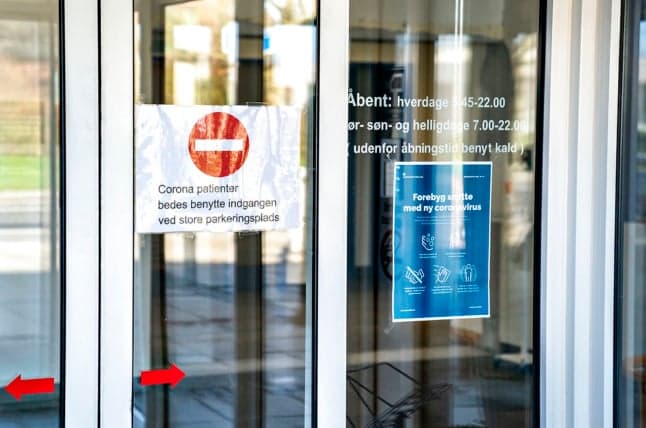Why is 'critical threat' status of Covid-19 important in Denmark?

Covid-19 is set to again be classified as a “critical threat” to Danish society, a status it previously had until September this year.
A majority of political parties supports the government’s plan to reintroduce coronapas (Covid-19 health pass) requirements and to again designate the virus a “critical threat” to society, according to reports on Monday.
The government’s advisory Epidemic Commission earlier on Monday recommended the change of status of Covid-19 from “dangerous to public health” to a “critical threat” to society. That is a reversal of the move in September, when earlier restrictions were lifted.
On September 10th, Covid-19 was no longer classed as a “critical threat to society”, or samfundskritisk sygdom, a disease which threaten the functions of society as a whole, by for instance, overwhelming the health system. Covid-19 was first rated a samfundskritisk sygdom on March 10th 2020.
Since then, Covid-19 has been rated an almen farlig sygdom, “dangerous to public health”.
The distinction is important because it impacts the ability of the government to introduce restrictions aimed at curbing spread of the virus.
When a disease is considered a “critical threat”, the government can impose restrictions such as bans on people gathering and school closures, mandate use of face masks, and demand Covid-19 passes, provided a majority in parliament's epidemic committee does not oppose this.
This does not apply for diseases only rated “dangerous to public health”. In this case, the (minority) government needs a parliamentary majority to vote in favour of any restrictions.
In either case, however, the government and health authorities have powers to test people and collect and share health data, and require people to self-isolate. That is because the coronavirus is still categorised as a danger to public health even when it is not a critical threat to society.
Parliament’s epidemic committee (udvalg in Danish, not to be confused with the Commission, kommission) was scheduled to on Tuesday to discuss the issue.
Parliament must support any decision for the status of Covid-19 to be changed to critical.
As such, the committee, which has representation from all of the parliamentary parties, has a decisive role in the process.
READ ALSO: Five key things Danish PM said about country’s coronavirus situation
Comments
See Also
A majority of political parties supports the government’s plan to reintroduce coronapas (Covid-19 health pass) requirements and to again designate the virus a “critical threat” to society, according to reports on Monday.
The government’s advisory Epidemic Commission earlier on Monday recommended the change of status of Covid-19 from “dangerous to public health” to a “critical threat” to society. That is a reversal of the move in September, when earlier restrictions were lifted.
On September 10th, Covid-19 was no longer classed as a “critical threat to society”, or samfundskritisk sygdom, a disease which threaten the functions of society as a whole, by for instance, overwhelming the health system. Covid-19 was first rated a samfundskritisk sygdom on March 10th 2020.
Since then, Covid-19 has been rated an almen farlig sygdom, “dangerous to public health”.
The distinction is important because it impacts the ability of the government to introduce restrictions aimed at curbing spread of the virus.
When a disease is considered a “critical threat”, the government can impose restrictions such as bans on people gathering and school closures, mandate use of face masks, and demand Covid-19 passes, provided a majority in parliament's epidemic committee does not oppose this.
This does not apply for diseases only rated “dangerous to public health”. In this case, the (minority) government needs a parliamentary majority to vote in favour of any restrictions.
In either case, however, the government and health authorities have powers to test people and collect and share health data, and require people to self-isolate. That is because the coronavirus is still categorised as a danger to public health even when it is not a critical threat to society.
Parliament’s epidemic committee (udvalg in Danish, not to be confused with the Commission, kommission) was scheduled to on Tuesday to discuss the issue.
Parliament must support any decision for the status of Covid-19 to be changed to critical.
As such, the committee, which has representation from all of the parliamentary parties, has a decisive role in the process.
READ ALSO: Five key things Danish PM said about country’s coronavirus situation
Join the conversation in our comments section below. Share your own views and experience and if you have a question or suggestion for our journalists then email us at [email protected].
Please keep comments civil, constructive and on topic – and make sure to read our terms of use before getting involved.
Please log in here to leave a comment.